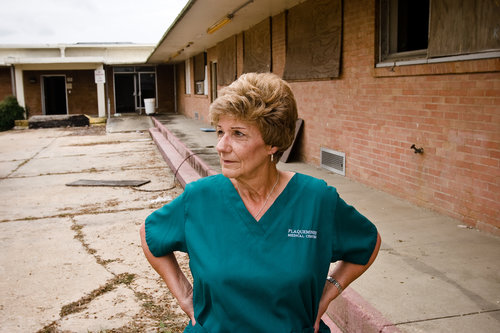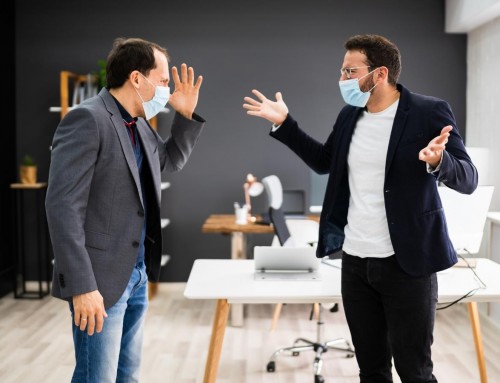by Michelle Rathman
I have worked in the healthcare sector for the past 21 years, first in public health, and now in rural for over 15 years. As I travel from state to state, town to town, small hospital to small hospital, I shake hands and have conversations with dedicated, talented, and selfless men and women working tirelessly to support the health and wellbeing of their communities while also under tremendous pressure to do more with far less.
Each place I go, I eat at local restaurants, shop at local grocery stores, and every chance I get, walk along main streets to observe and look into the faces of people who are relying on their hospital to ‘always’ be there for them. I spend a lot of time in hospital and clinic waiting rooms with the intention if gaining insight that will help hospital teams to improve patient engagement and experiences. I always leave with much more insight than anticipated.
That rural healthcare is, for lack of a more suitable description, under attack, makes absolutely no logical sense. Not in my mind anyhow. I recognize there is a lot of unmet needs and compelling demands facing our country. I also believe it’s critical to understand that over 60 million people living in 60% of our nation’s most at-risk counties will face unimaginable circumstances if the AHCA or the 2018 Fiscal Budget, (oddly titled, “A New Foundation for American Greatness,”) passes in their current forms.
I’ve been thinking. If every congressional and senate leader would spend a day in a rural hospital observing and listening (not defending or campaigning), I wonder if they would gain a better understanding as to why it is so essential to protect rural health and strengthen the safety net. While they receive letters from constituents or stand in front of emotionally-charged town halls, and even though we have a bevy of passionate and smart rural health advocates and stakeholders knocking on their Capitol Hill doors, nothing, not any other thing, compares to being there – present with the people affected by these life-altering decisions.
Representatives who come from rural have an understanding of the stakes, better than their non-rural counterparts it seems. The invitation today is for those who don’t know rural, even if they think they do, to spend time in someone else’s hometown. We must do all we can to open their minds and hearts to learn firsthand what it’s like to have one option for care and wake each morning with the prospect of the only healthcare resource closing. To make matters worse, live day to day with mounting anxiety over losing insurance because there is no company willing to provide coverage in the region, or becomes completely unaffordable.
I don’t live in the rural communities I visit, (although it feels like I do because I’m on the road roughly 26-30 weeks each year) so why do I care so much? I care because it is the right and responsible thing to do. Whether you live in rural, it is very likely you know someone who has or does. Maybe it’s a grandparent, a cousin, a guy you used to work with, or a classmate from college.
The issues facing rural communities, including limited access to jobs, housing, food, education, and healthcare are not just ‘rural’ problems. These are concerns that distress our country as a whole. I am of the same belief when urban centers face these issues; that is, rural folks should care about them too. It is never okay for any group of people to be without life’s necessities. When rural communities lose their hospitals, they lose health care, and that means emergency rooms, doctors, nurses, diagnostic services, physical therapy, in other words, the works. The rate at which rural hospitals are closing, and projected to close if we keep this up, is alarming. I don’t believe it’s up to only those in the rural sector to fix it alone – they can’t.
Consider that when a rural hospital closes, the health care needs of the community do not vanish, they just disperse. If you live in an area where a hospital 35, 50, 100 miles of you has closed, you’re feeling it; you may not even know it. Rural hospital closures cause lives to be lost, displaced and changed forever. Communities slowly (or quickly) become unrecognizable.
Rural hospitals are up against the clock, and just because you may not see a farm from your front door, it’s essential to understand that there is simply not going to be enough health care to go around for all of us. It’s unfair and unreasonable that others, by way of their geography, have no health care and while others get theirs. All are deserving of quality, safe healthcare. Now, more than ever, we need healthcare resources and leaders to focus greater efforts on health education that leads to improved population health. Instead, they are jumping through hoops of fire. Shaming people for their medical predicament and punishing them for having a preexisting condition is not the way to greatness. Doctors and health providers need to be compensated fairly and adequately for their amazing work, for treating chronic illnesses, saving lives, caring for sick kids and elderly patients. We must keep protections in place that support medical education and reward those willing and wanting to serve the healthcare needs of rural populations, not put up more roadblocks. Rural hospitals should not be set up to fail while the larger systems with more affluent communities and covered lives thrive. The passing of the President’s proposed budget, along with health care legislation sitting before the Senate, does all this,and sadly, more.
There is no perfect answer or one solution of course. Certainly, we can do much better than this. We must.
Working with The National Organization of State Offices of Rural Health in their efforts to bring greater awareness to National Rural Health Day, November 16,2017, I have developed #PoweofRural. The goal for this #PoweofRural movement is to bring together industry and non-industry stakeholders to innovate, collaborate, education and communicate to benefit rural lives and those who dedicate their life’s work to improving rural health.







